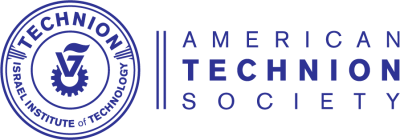Newswise — Consumption of soft drinks, supplemented with white sugar, alters the DNA of gut bacteria and affects the host immune system. The good news? These effects are reversible.
The findings by researchers from the Ruth and Bruce Rappaport Faculty of Medicine, Technion-Israel Institute of Technology, Prof. Naama Geva-Zatorsky, Ph.D. student Noa Gal-Mandelbaum, and other members of the Geva-Zatorsky team were recently published in Nature Communications. Dr. Tamar Ziv and the Smoler Proteomics Center at the Technion assisted with the research.
Gut bacteria are important members of the microbial community within our body, i.e., the microbiome. hese bacteria, which have co-evolved with humans for generations, are so essential to human health in general and to the development of the immune system in particular that we cannot function without them. The human gut is constantly influenced by changes in the environment. To keep up, our gut bacteria must adapt quickly. They do this through a process called functional plasticity, which allows them to change their behavior and functions in response to factors like nearby microbes, our health status, and what we eat.
A previous study by the Geva-Zatorsky lab discovered that one way gut bacteria adapt to environmental changes is through DNA inversions—rapid genetic switches that help them respond and defend themselves. In their current study, the researchers investigated how these DNA inversions occur in response to dietary factors. They found that consuming soft drinks, which contain white sugar, can alter the DNA of gut bacteria and, in turn, impact the host’s immune system. The study focused on Bacteroides thetaiotaomicron – a prominent gut member that takes part in preventing gut inflammation, preserving the gut mucus layer, and protecting the host from pathogen invasion. The researchers studied the effects of consuming different dietary components on the DNA inversion profile of these bacteria, in vitro, in mice, and humans. They discovered that white sugar consumption causes DNA inversions in these bacteria, which led to changes in inflammatory markers of the immune system, including ones in T-cell populations, cytokine secretion, and gut permeability.
The good news is that these effects are reversible; once mice stopped consuming white sugar, the bacterial DNA inversion state reverted, and the immune system’s state returned to normal. This study stresses the importance of studying the complex effects of nutrition on the microbiome and our health state, and the researchers assess that this will allow tailored dietary recommendations to human subjects to improve their immune system’s state and their health in general.The research was supported by the Technion President’s Fund, RTICC – the Rappaport Technion Integrated Cancer Research Center, the Alon Fellowship for Outstanding New Faculty, the Seerave Foundation, CIFAR, and the European Research Council (ERC).
For the full article in Nature Communications
Click here for photos
In the photos:
- Prof. Naama Geva-Zatorsky (Credit: Studio Lucido)
- Noa Gal-Mandelbaum
- The effect of a sweetened beverage on bacterial function – a demonstration of functional plasticity. Created by AI, inspired by an illustration by Tom Blum, a student in the research group.
# # #
Since 1924, the Technion – Israel Institute of Technology has been home to dreamers, inventors, and innovators who make the seemingly impossible possible. Within classrooms and laboratories, Technion students and faculty reach beyond their disciplines to pursue the unconventional. Alumni carry that pioneering spirit to the highest positions in the Israeli government, entrepreneurial startups, and corporations around the world. From technologies that keep Israel safe, to environmentally friendly rocket fuel, to microfluidic chips that detect heart disease and cancer, Technion people help the State of Israel flourish while solving some of humankind’s most intractable problems.
The American Technion Society supports visionary education and world-changing impact through the Technion – Israel Institute of Technology. Based in New York City, we represent thousands of US donors, alumni and stakeholders who invest in the Technion’s growth and innovation to advance critical research and technologies that serve the State of Israel and the global good. Since 1940, our nationwide supporter network has funded new Technion scholarships, research, labs, and facilities that have helped deliver world-changing contributions and extend Technion education to campuses in three countries.
